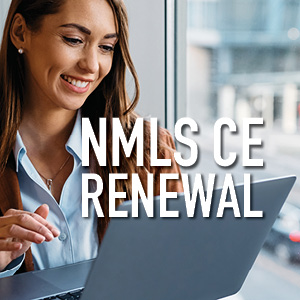Requirements to renew an Oregon real estate license
By Jeff Sorg, OnlineEd Blog
(May 9, 2017)
(Portland, OR) – To renew an Oregon real estate license, the licensee must pay a renewal fee and meet the following continuing education requirements:
- 30 hours of continuing education during the two years preceding license renewal;
- At least 3 of the 30 hours must be in a course on recent changes in real estate rule and law called the Law and Rule Required Course (LARRC), offered for FREE at OnlineEd;
- First-time renewing licensees must take a Real Estate Board-approved 27-hour course on Broker Advanced Practices and a 3-hour course on recent changes in real estate rule and law (LARRC);
- Continuing education courses and their course objectives must be based on Real Estate Board approved topics;
- Only courses completed through an Oregon Real Estate Board Certified Continuing Education Provider will qualify for continuing education;
- The Certified Continuing Education Provider must ensure that persons who teach their continuing education courses meet certain instructor qualification requirements; and
- As part of the license renewal process, licensees will self-certify that they have met the continuing education requirement for the applicable renewal cycle.
- While courses might be delivered by approved providers, it is the licensee’s responsibility to see that the courses meet all timing requirements and that provider can prove your time in the course to the Agency. This means that online courses must have timers and live lecture courses must have a method in place to verify time spent in attendance. A provider’s certificate of completion issued when the provider cannot prove time spent in the course will not be counted if discovered during an agency audit.
Eligible Topics
At least 3 of the 30 hours must be from a course on recent changes in real estate rule. The course on the recent rule and law changes is known as Law and Rule Required Course, commonly known by its acronym LARRC (“lark”). The remaining 27 hours of continuing education can come from any of these topics:
- Principal broker or property manager record keeping
- Principal real estate broker supervision responsibilities
- Principal broker or property manager client trust accounts
- Agency relationships and responsibilities for brokers, principal brokers, or property managers
- Misrepresentation in real estate transactions
- Property management
- Advertising regulations
- Real estate disclosure requirements
- Real estate consumer protection
- Anti-trust issues in real estate transactions
- Commercial real estate
- Real estate contracts
- Real estate taxation
- Real estate property evaluation, appraisal, or valuation
- Fair Housing laws or policy
- Managing a real estate brokerage
- Business ethics
- Risk management
- Dispute resolution
- Real estate finance
- Real estate title
- Real estate escrows
- Real estate development
- Condominiums
- Subdivisions
- Unit owner or homeowner associations
- Timeshares
- Water rights
- Environmental protection issues in real estate
- Land use planning, zoning, or other public limitations on use
- Real estate economics
- Real estate law or regulation
- Negotiation
Specifically excluded from eligible continuing education are courses about these topics:
- Real estate broker or property manager pre-licensing courses
- Examination preparation classes
- Sales meetings
- Motivational classes or seminars
- Time management classes or seminars
- Sales and marketing classes or seminars
- Psychology classes or seminars
- Trade association orientation courses
- Courses in standardized computer software programs not specifically related to one of the eligible topics
- Courses with content that is specific to another state or jurisdiction
Certified Continuing Education Providers
For continuing education to qualify for license renewal, the education must be delivered by a Certified Continuing Education Provider and be time-monitored. The Certified Continuing Education Provider must
- ensure that a course offered is within the scope of one or more of the eligible course topics;
- identify to the licensee which course topic the course covers;
- ensure that the course meets the minimum length requirement of one credit hour (50 minutes);
- assign each course a four-digit number that is unique to that course;
- ensure that courses offered will meet the stated learning objective requirements;
- ensure that the instructor who teaches a continuing education course meets the applicable instructor qualification requirements;
- give each licensee who completes a course a course completion certificate; and
- keep records of each course provided for three years.
Online Renewal
To renew, licensees must use the REA’s online renewal system known as e-License. Licenses cannot and will not be renewed through the mail. During the online renewal process, licensees will self-certify that they have completed the required continuing education requirements. As part of this certification process, licensees must keep all certificates of completion received from continuing education providers and submit their completion information eLicense. The information necessary to complete this form will be found on each qualifying continuing education course completion certificate. All certificates must be kept by the licensee for three years after the renewal date for which the certificate was used for continuing education credit. Course completion certificates are obtained from the course providers.
The REA’s eLicensing website is: https://orea.elicense.irondata.com
The REA required information to be included on all qualifying continuing education course certificates includes:
- the licensee’s name and license number;
- the REA certified course provider’s name and REA provider number;
- the course name and identification number. This course identification number is a four-digit provider number assigned by REA, followed by the 4-digit course number assigned by the provider and registered with the REA;
- the date, location, and length of time assigned to the course;
- the eligible course topics covered, or whether the course is the three-hour Law and Rule Required Course, the Broker Advanced Practices Course, or the Brokerage Administration and Sales Supervision course; and
- the name of the instructor.
###
For more information about OnlineEd and their education for real estate brokers, principal brokers, property managers, and mortgage brokers visit www.OnlineEd.com.
All information contained in this posting is deemed correct as of the date of publication, but is not guaranteed by the author and may have been obtained from third-party sources. Due to the fluid nature of the subject matter, regulations, requirements and laws, prices and all other information may or may not be correct in the future and should be verified if cited, shared or otherwise republished.
OnlineEd® is a registered Trademark



